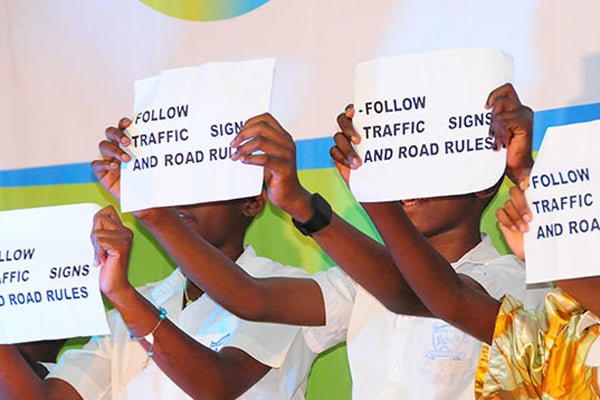Private sector can play a big role in improving road safety

What you need to know:
- The United Nations (UN) highlights road safety management, safer roads and mobility, vehicles, road users and post-crash response as the five pillars of the United Nations Decade of Action for Road Safety.
The United National annual road safety week is commemorated in May, every year. This year it will run from May 17 to 23.
More than 1.2 million people are killed and 50 million more injured every year on the world’s roads. At least 92 per cent of the deaths recorded are in low and middle income countries.
In Uganda, the police recorded 3,407 fatalities from road crashes in 2019 and nine deaths each day and that is just the ones that are reported or the ones lucky enough to have traffic police on site.
Crashes, deaths and injuries threaten every person and in low and middle income countries in particular, the situation is deteriorating with increased development and rapid motorisation.
Developing countries are still struggling to acquire the infrastructure, management capacity, and enforcement capability to ensure safety on their road networks.
It is imperative that all stake holders work together in well-coordinated partnerships, good will and high purpose to make the country’s roads safer for all users, especially those categorised as vulnerable.
The United Nations (UN) highlights road safety management, safer roads and mobility, vehicles, road users and post-crash response as the five pillars of the United Nations Decade of Action for Road Safety.
These were based on recommendations of the World Report on Road Traffic Injury Prevention and Commission for Global Road Safety.
Stakeholders must work at ensuring that all these are uniformly addressed during their endeavours to make road networks more user-friendly.
There are so many ways the private sector in partnership with government and CSOs can give back and actively participate in road safety improvement like...
• Mobilising road safety support and participation from others in the same line of business. It is the one area where competition will not be necessary because the goal is the same for all; reducing road carnage.
• Providing funding for pilot projects in key areas. Different government institutions might have ideas that provide solutions to the problem, however, lack funding to execute them. The private sector can jump in and partner on these for their implementation.
• Partnering with local authorities and other institutions to improve dilapidated road infrastructure in high-risk areas, such as around school, hospitals or busy pedestrian routes.
• Advancing road safety sensitisation and training within own staff and fleet operators. Ensuring well maintained vehicles, installing safety devices in company fleet and discouraging long driving hours not only protects the fleet operators but also, the public.
• Donating road safety equipment for example reflective vests for traffic teams, helmets for cyclists, signage for installation, among others.
• Pushing strong social marketing campaigns based on best road safety practices. Mobilising communication capabilities to engage media, raise visibility of road safety, and help educate consumers.
• Providing technical support to governments and help build data management capacity and supporting crash data improvement initiatives.
We have so many company corporate social responsibility activities but not many are geared towards road safety. It is one of those areas that has not been given a lot of attention and yet road crashes and associated effects can happen to anyone. It is everybody’s problem and should be tackled as such.
Author: Jemima Nalumansi, KCCA
Initiative Coordinator, Kampala
Bloomberg Philanthropies Initiative for Global Road Safety



